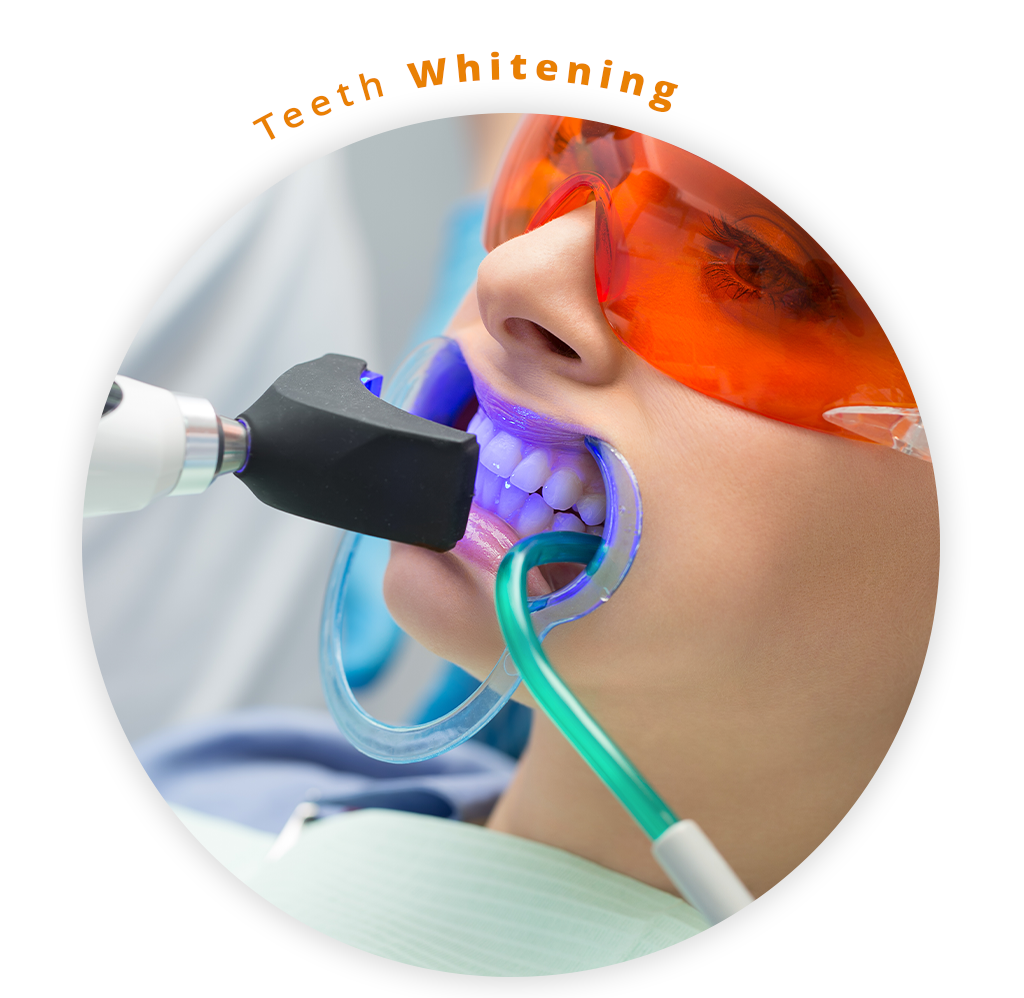Teeth whitening is a cosmetic dental procedure that uses various methods to remove stains and discoloration from teeth, resulting in a brighter and more attractive smile.

Teeth Whitening
Teeth whitening is a popular cosmetic dental treatment that involves lightening the color of the teeth to achieve a brighter, whiter smile. There are several different methods for whitening teeth, including in-office treatments and at-home kits. Many people seek teeth whitening to improve the appearance of stains or discoloration caused by aging, tobacco use, or consumption of certain foods and beverages.
In-office teeth whitening treatments are typically performed by a dentist or dental hygienist and involve the application of a bleaching agent to the teeth, which is activated by a special light. This method can produce dramatic results in as little as one appointment. At-home kits may also include a bleaching agent, but they are generally less potent and require a longer treatment period to achieve desired results.
While teeth whitening is generally considered safe and effective, it may not be appropriate for everyone. People with sensitive teeth or gum disease may experience discomfort during the whitening process. Additionally, teeth whitening may not be effective for teeth that have been discolored due to certain medications or injury.
Overall, teeth whitening can be an effective way to enhance the appearance of your smile and boost your self-confidence. It’s important to discuss your options with a dentist or dental professional to determine the best method for your individual needs and to ensure that the treatment is safe and effective for you.
